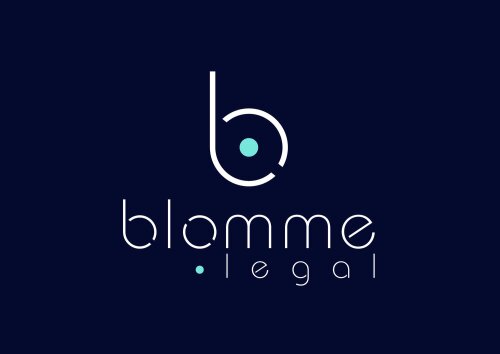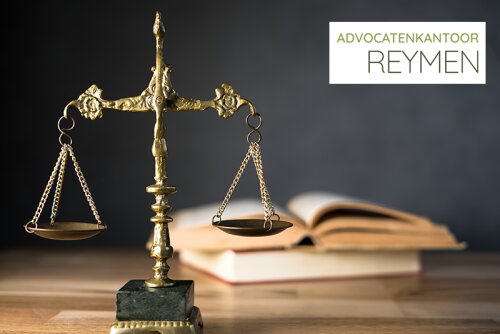Best Arrests & Searches Lawyers in Belgium
Share your needs with us, get contacted by law firms.
Free. Takes 2 min.
Or refine your search by selecting a city:
List of the best lawyers in Belgium
About Arrests & Searches Law in Belgium
Arrests and searches in Belgium are governed by a complex set of legal provisions aimed at balancing individual rights with the needs of law enforcement. Belgian law ensures the protection of fundamental rights and freedoms, as outlined in its Constitution and in compliance with European human rights standards. The police and judicial authorities are granted specific powers concerning arrests and searches, but these are limited by checks and balances intended to prevent abuse and ensure fairness in the process.
Why You May Need a Lawyer
Legal assistance is crucial in situations involving arrests and searches due to the following reasons:
- Understanding Your Rights: A lawyer can help you understand your rights during an arrest or search, ensuring that your legal protections are not violated.
- Protection Against Unlawful Actions: If you believe that a search or arrest was conducted unlawfully, you can seek legal advice to challenge its validity.
- Legal Representation: During police questioning or in court, legal representation ensures you are defended by someone knowledgeable about Belgian law.
- Dealing with Charges: If an arrest results in criminal charges, acting promptly with legal support is essential for your defense.
- Complex Procedures: The legal processes involved in arrests and searches can be intricate, and expert guidance can navigate these complexities effectively.
Local Laws Overview
Key aspects of Belgian law relevant to arrests and searches include:
- Arrest Procedures: According to Belgian law, an arrest can only be made by the police if there is a legal basis, such as a warrant, or if the person is caught in the act of committing a crime.
- Rights During Detention: Detained individuals have the right to be informed of the reasons for their detention and to consult a lawyer.
- Search Warrants: Typically, a search of premises requires a search warrant issued by a judge. There are exceptions, such as cases involving immediate danger or when seeking evidence that may be destroyed or concealed.
- Limits on Searches: Any search must adhere to proportionality, meaning it should be appropriate in scope relative to the nature of the investigation.
Frequently Asked Questions
1. Can the police arrest me without a warrant?
Yes, the police in Belgium can arrest you without a warrant if you are caught in the act of committing a crime or if there is an immediate threat to public safety.
2. What should I do if I'm arrested?
Remain calm and exercise your right to remain silent. Ask to speak with a lawyer as soon as possible, and do not sign any documents without legal advice.
3. Do police need a warrant to search my home?
Typically, a warrant is needed to search a home, unless there is immediate danger, consent is given, or evidence may be imminently removed or destroyed.
4. Can I refuse a search if police do not have a warrant?
You have the right to refuse a search without a warrant unless the officers have legal grounds for the search, such as an immediate threat or consent from another occupant.
5. How long can I be detained without charge?
In Belgium, you can be held for up to 48 hours without being charged, but this period can be extended with judicial approval.
6. What rights do I have if I'm detained?
You have the right to be informed of the charges, communicate with a lawyer, and have your family informed of your detention.
7. Can I see my lawyer during police questioning?
Yes, you are entitled to have your lawyer present during police questioning.
8. What should I do if I believe my rights were violated during a search?
Contact a lawyer immediately. They can help you file a complaint and take potential legal action depending on the circumstances.
9. Are there penalties for resisting arrest?
Yes, resisting arrest can result in additional charges and potential penalties under Belgian law.
10. Can evidence obtained illegally be used against me?
Illegally obtained evidence may be inadmissible in court. A lawyer can help challenge such evidence if it violates your rights.
Additional Resources
For more information or assistance, consider these resources:
- Belgian Federal Police: Offers guidance and explanations about police procedures and citizen rights.
- Ministry of Justice Belgium: Provides information on legal rights and the judicial system.
- Legal Aid Services: Offers support for those who need legal assistance but cannot afford it.
Next Steps
If you need legal assistance related to arrests and searches, consider the following steps:
- Consult a Lawyer: Seek legal advice from a qualified lawyer who specializes in criminal law.
- Document Everything: Keep detailed records of incidents, communications, and interactions with law enforcement.
- Know Your Rights: Familiarize yourself with your legal rights to better navigate the situation.
- Seek Legal Aid: If necessary, explore legal aid options for assistance with legal costs.
Act promptly to ensure your rights are protected and to receive necessary legal support.
Lawzana helps you find the best lawyers and law firms in Belgium through a curated and pre-screened list of qualified legal professionals. Our platform offers rankings and detailed profiles of attorneys and law firms, allowing you to compare based on practice areas, including Arrests & Searches, experience, and client feedback.
Each profile includes a description of the firm's areas of practice, client reviews, team members and partners, year of establishment, spoken languages, office locations, contact information, social media presence, and any published articles or resources. Most firms on our platform speak English and are experienced in both local and international legal matters.
Get a quote from top-rated law firms in Belgium — quickly, securely, and without unnecessary hassle.
Disclaimer:
The information provided on this page is for general informational purposes only and does not constitute legal advice. While we strive to ensure the accuracy and relevance of the content, legal information may change over time, and interpretations of the law can vary. You should always consult with a qualified legal professional for advice specific to your situation.
We disclaim all liability for actions taken or not taken based on the content of this page. If you believe any information is incorrect or outdated, please contact us, and we will review and update it where appropriate.
Browse arrests & searches law firms by city in Belgium
Refine your search by selecting a city.














